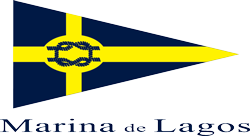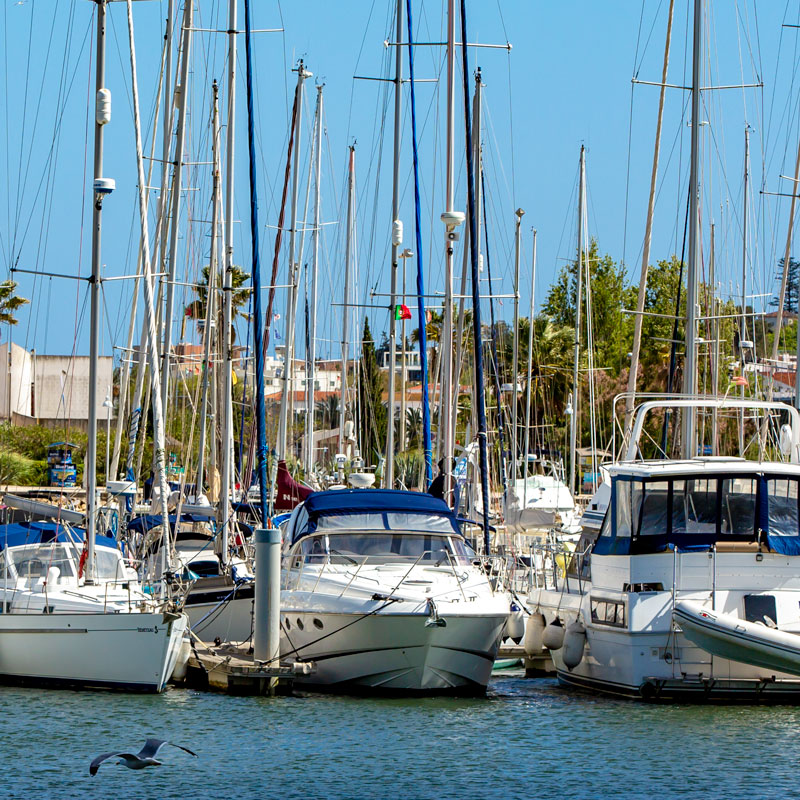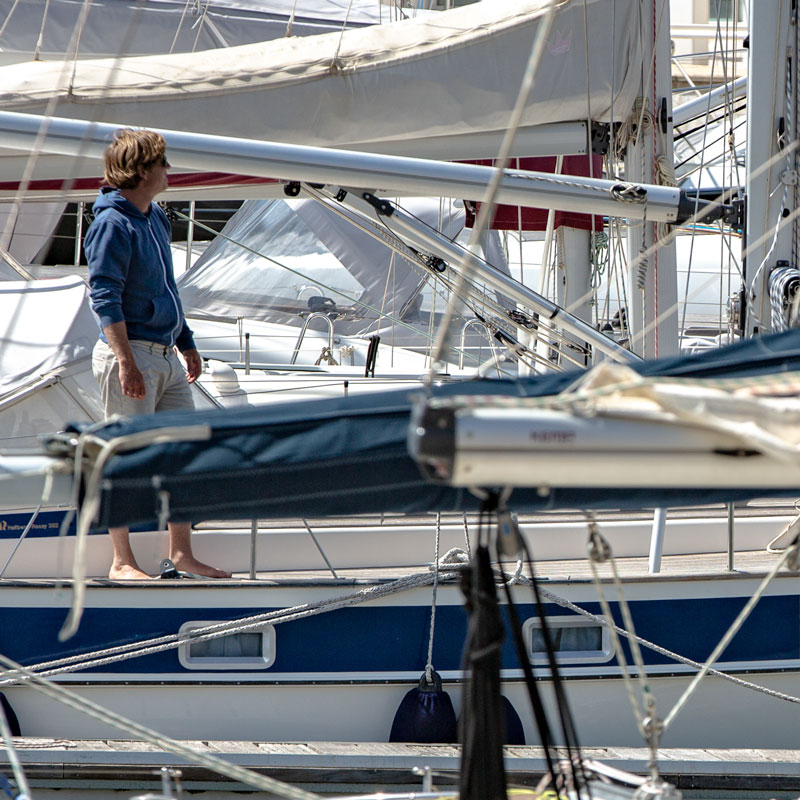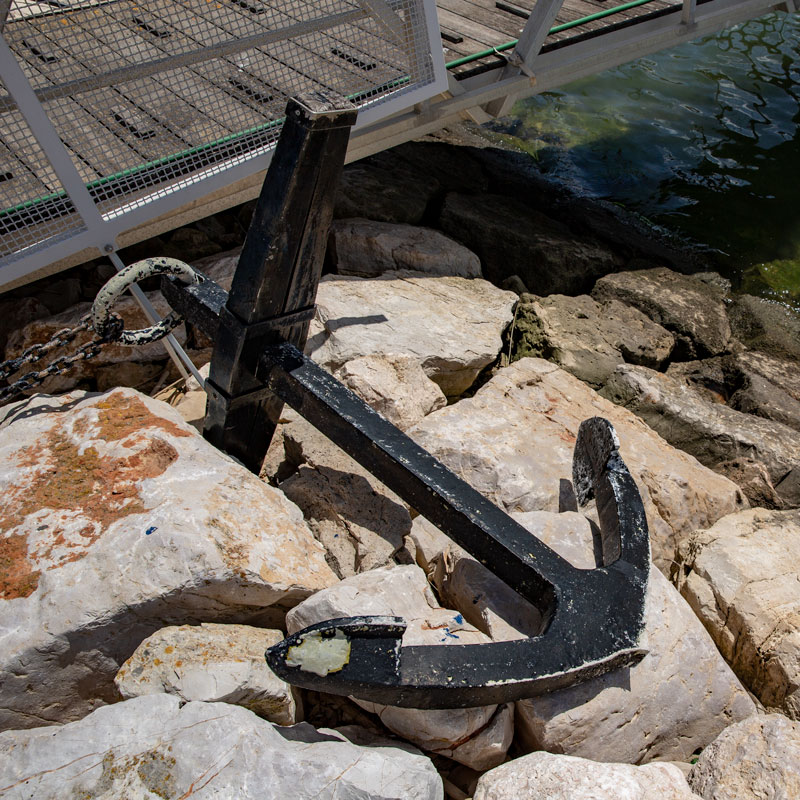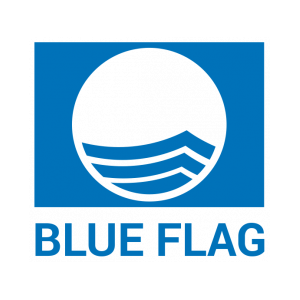Environmental Guide for Boaters
Small actions can make us all contribute to improve environmental quality, educate the youngest and be part of those who really take part in the preservation of our natural resources.
- THE THREE Rs -
Reduce, Re-use and Recycle are the three words to remember when we think of waste management. We all are waste managers and the choices we make affect us and our environment, whether at home or on the boat.
Following these three Rs, you can make a difference.
REDUCE
…the quantity of materials you use in your activity. As an example, use less detergent. Manufacturers normally advise larger amounts than actually needed. Another idea to reduce waste is to buy products that are not over packaged. There are hundreds of ways to reduce the waste you produce and a small idea can do a lot to help the environment.
RE-USE
…items whenever possible. A good example is to re-use turpentine or solvents by keeping them in sealed containers, letting the dirty part rest on the bottom and decanting the clear to a different container. Once this operation is no longer possible, be sure to dispose of these materials carefully.
You can also cut the base of plastic bottles and use them as water scoops. Once again, there are hundreds of different uses for many things. Share your re-utilization ideas and, together, we can make a difference.
RECYCLE
…all possible materials. Paper, steel and aluminium cans, plastic, cardboards, engine oil, glass and many other materials are renewable resources. By recycling them, not only are you saving resources, but you are also saving precious space and energy.
The materials that can last hundreds or millions of years can be recycled and re-used several times. A glass bottle with an unknown decomposition rate can be recycled and used to produce a new container using 100% recycled glass.
Recycling also saves energy. Producing an aluminium can from a recycled one spends 95% less energy than producing one from new material.
If these materials are simply thrown overboard, they will take years to decompose. It will take paper 2 to 4 weeks to decompose; a can, 100 years; an aluminium can, 200 to 500 years; plastic, 450 years; a glass bottle will take more than 500 years; and the decomposition rate for Styrofoam is unknown.
Recycling aboard
Recycling cans, plastic containers and glass bottles is a simple way to control the drink originated waste. Keep a bag or box on board, no need for a big one, just the right size to fit the recyclable materials you took on board for the day. Remember to empty your recycling container every time you go ashore, making it ready for your next trip.
Space in a boat is precious, so it is a good idea to have a can crusher on board, allowing you to reduce the space recyclable materials occupy. Plastic bottles can be flattened in vacuum.
The impact of garbage
While you are using your boat, you do not think of how much the plastic that makes everyday life so much easier can be harmful to boats and wildlife. Plastic is light, strong and floats, besides being designed to last for long. When someone throws plastic overboard, it does not sink or decompose.
On board
When nets and plastic ropes, or fishing lines, are left in the water, they can damage engines by getting tangled in the propellers.
In wildlife
Wild animals have been very much affected by plastic left in the water. Several birds and fish get caught and strangle, and over 50 species eat plastic. Grown birds have been seen feeding plastic balls to the young. Their stomachs feel satisfied, and this eventually leads to death by starvation. By being a conscientious boater you can help save these birds and other animals from agony and death. Please do not throw your garbage to the water.
Recycling in Marina de Lagos
Marina de Lagos has recycling containers for engine oils, cans, paper and cardboard, glass, batteries and plastic. Use these containers every time you can.
Follow this advice to keep the water free from waste:
- All the potential garbage taken on board must be later taken to shore to be recycled or properly disposed of. If you go fishing, make sure all the lines come back to the Marina with you.
- Take the least possible amount of plastic on board. When possible, buy products that are packaged in glass or metal. Chose re-usable plastic containers instead of cling film to pack up your food.
- Ensure that your waste and recyclable materials do not fall overboard or fly away by placing them in appropriate containers.
- Use re-usable cutlery, glasses and silverware thus minimizing the waste produced on board.
- Pick up and contain garbage that you find during your boating trips. This will make you feel part of those that care about the environment.
- Recycle aluminium, glass, plastic, paper, engine oil, cardboard and any other recyclable material.
- Encourage others to also be environmentally aware every time they use their boats.
